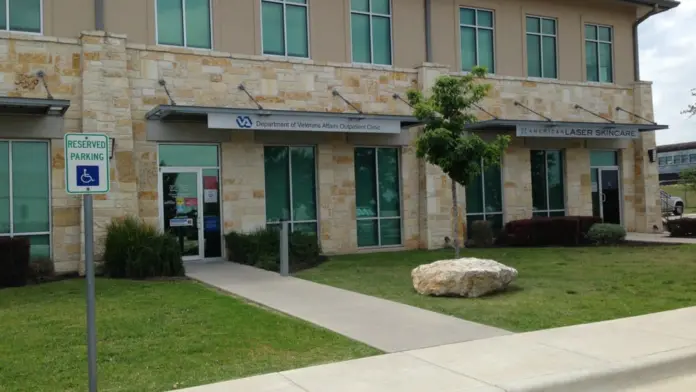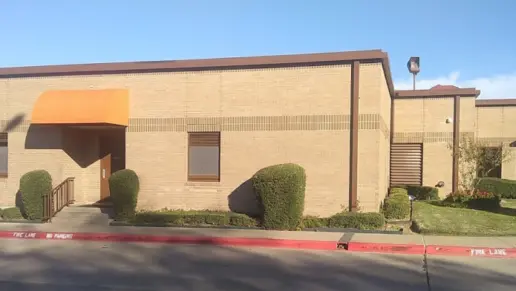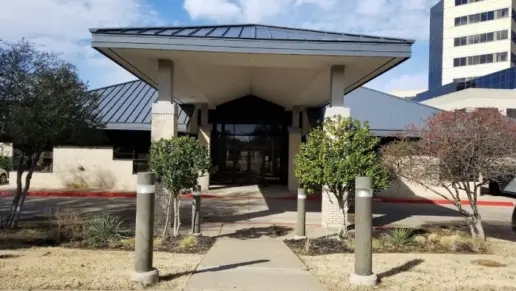About Cedar Park VA Clinic
Cedar Park VA Clinic is located in Cedar Park, Texas. Their outpatient clinic provides primary care and various specialty services for veterans and their family members. This includes smoke cessation, women health and mental healthcare. They even offer toxic exposure screening to identify harmful substances you may have encountered during your military service.
Their mental healthcare addresses common mental health conditions. This includes PTSD, depression and anxiety. It also includes support for veterans facing substance use disorders and co-occurring conditions. The latter is when someone is dealing with both addiction and mental issues simultaneously. These conditions result from stressful or adverse situations that characterize military life.
The treatment aims to help veterans address such traumatic and addictive behavior and live a productive life. The services include consultations, evaluation and group and individual therapy. Through the therapeutic sessions, you can better learn to address the underlying personal issues fueling your behavioral challenges and build sound coping strategies against the triggers.
You’ll also learn effective communication techniques and how to manage anger and stress. Emphasis is on relapse prevention and maintaining lasting sobriety. Medication assisted treatment or alternative therapy may be provided if relevant to your recovery.
Their smoke cessation program can be very beneficial if you’re struggling with quitting smoking. They provide support and strategies that may complement optional nicotine replacement therapy. These may include FDA approved meds to manage nicotine withdrawal and the urge to smoke. This is supported with in person/ phone counseling to fast track withdrawal. There’s even a Tobacco Cessation Quitline for counseling and cessation strategies.
Their women’s services meet specific women’s needs like military sexual trauma, disease screening and mental health. The service may include wellness programming, family planning and menopause treatments.
The best part is that these services are affordable and have convenient payment options. This is because they accept Medicare, Medicaid and TRICARE. If you’re uninsured and have financial challenges you can access aid via VA financial hardship assistance. You may even get help with transportation to and from your appointment if you meet the eligibility criteria.
The facility also supports same day appointments, telehealth visits and walk in express care for emergency health issues. As an aftercare service, they may connect you to VA community resources like housing, employment opportunities and legal aids.
Latest Reviews
Rehab Score
Gallery

Location
Other Forms of Payment
Private insurance refers to any kind of healthcare coverage that isn't from the state or federal government. This includes individual and family plans offered by an employer or purchased from the Insurance Marketplace. Every plan will have different requirements and out of pocket costs so be sure to get the full details before you start treatment.
Self-pay involves paying for treatment out of your own pocket. You can use savings or credit, get a personal loan, or receive help from family and friends to fund your treatment. If you don't have insurance or your insurance plan doesn't cover a specific program, self-pay can help ensure you still get the care you need.
Financial aid can take many forms. Centers may have grants or scholarships available to clients who meet eligibility requirements. Programs that receive SAMHSA grants may have financial aid available for those who need treatment as well. Grants and scholarships can help you pai for treatment without having to repay.
Military members, veterans, and eligible dependents have access to specific insurance programs that help them get the care they need. TRICARE and VA insurance can help you access low cost or no cost addiction and mental health treatment. Programs that accept military insurance often have targeted treatment focused on the unique challenges military members, veterans, and their families face.
Addiction Treatments
Levels of Care
Treatments
Many of those suffering from addiction also suffer from mental or emotional illnesses like schizophrenia, bipolar disorder, depression, or anxiety disorders. Rehab and other substance abuse facilities treating those with a dual diagnosis or co-occurring disorder administer psychiatric treatment to address the person's mental health issue in addition to drug and alcohol rehabilitation.
Mental health rehabs focus on helping individuals recover from mental illnesses like bipolar disorder, clinical depression, anxiety disorders, schizophrenia, and more. Mental health professionals at these facilities are trained to understand and treat mental health issues, both in individual and group settings.
Programs




Clinical Services
Cognitive Behavioral Therapy (CBT) is a therapy modality that focuses on the relationship between one's thoughts, feelings, and behaviors. It is used to establish and allow for healthy responses to thoughts and feelings (instead of unhealthy responses, like using drugs or alcohol). CBT has been proven effective for recovering addicts of all kinds, and is used to strengthen a patient's own self-awareness and ability to self-regulate. CBT allows individuals to monitor their own emotional state, become more adept at communicating with others, and manage stress without needing to engage in substance abuse.
Group therapy is any therapeutic work that happens in a group (not one-on-one). There are a number of different group therapy modalities, including support groups, experiential therapy, psycho-education, and more. Group therapy involves treatment as well as processing interaction between group members.
In individual therapy, a patient meets one-on-one with a trained psychologist or counselor. Therapy is a pivotal part of effective substance abuse treatment, as it often covers root causes of addiction, including challenges faced by the patient in their social, family, and work/school life.
Trauma therapy addresses traumatic incidents from a client's past that are likely affecting their present-day experience. Trauma is often one of the primary triggers and potential causes of addiction, and can stem from child sexual abuse, domestic violence, having a parent with a mental illness, losing one or both parents at a young age, teenage or adult sexual assault, or any number of other factors. The purpose of trauma therapy is to allow a patient to process trauma and move through and past it, with the help of trained and compassionate mental health professionals.
Whether a marriage or other committed relationship, an intimate partnership is one of the most important aspects of a person's life. Drug and alcohol addiction affects both members of a couple in deep and meaningful ways, as does rehab and recovery. Couples therapy and other couples-focused treatment programs are significant parts of exploring triggers of addiction, as well as learning how to build healthy patterns to support ongoing sobriety.
Research clearly demonstrates that recovery is far more successful and sustainable when loved ones like family members participate in rehab and substance abuse treatment. Genetic factors may be at play when it comes to drug and alcohol addiction, as well as mental health issues. Family dynamics often play a critical role in addiction triggers, and if properly educated, family members can be a strong source of support when it comes to rehabilitation.
Nutrition therapy, aka medical nutrition therapy (MNT), is a way of treating physical, emotional, and medical conditions through diet. Specific dietary plans are designed by professional nutritionists or registered dietitians, and patients follow them in order to positively affect their physical and mental health.
Amenities
-
Residential Setting
-
Private Rooms
Accreditations

The Joint Commission, formerly known as JCAHO, is a nonprofit organization that accredits rehab organizations and programs. Founded in 1951, the Joint Commision's mission is to improve the quality of patient care and demonstrating the quality of patient care.
Joint Commission Accreditation: Yes
Accreditation Number: 132610
Contact Information
1401 Medical Parkway
Suite 400, Building C
Cedar Park, TX 78613


